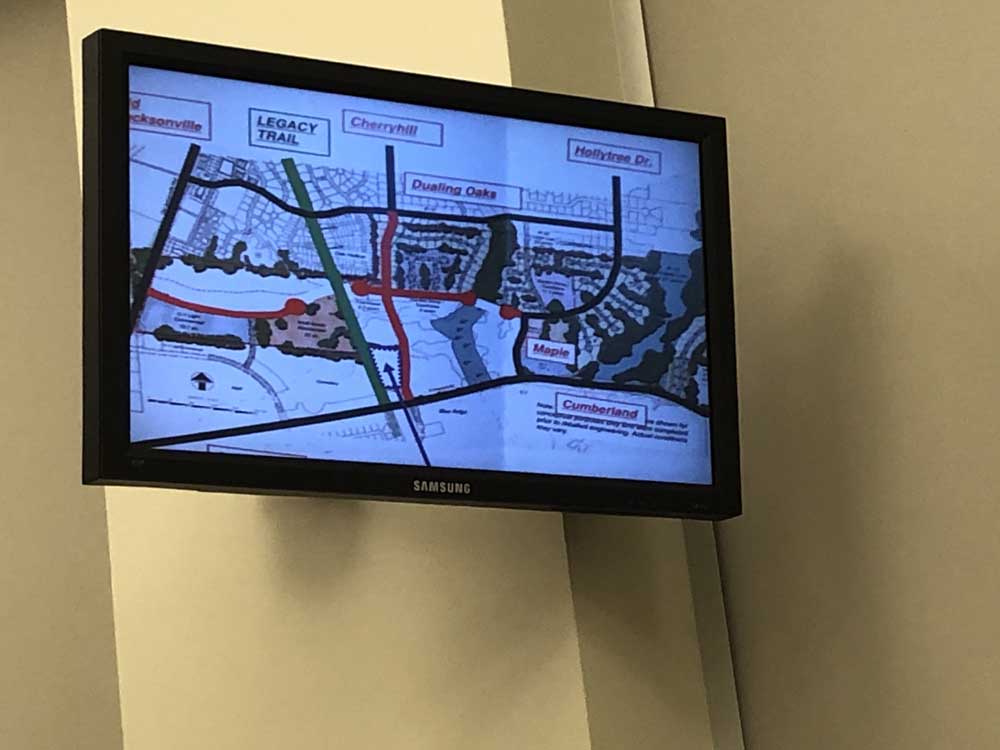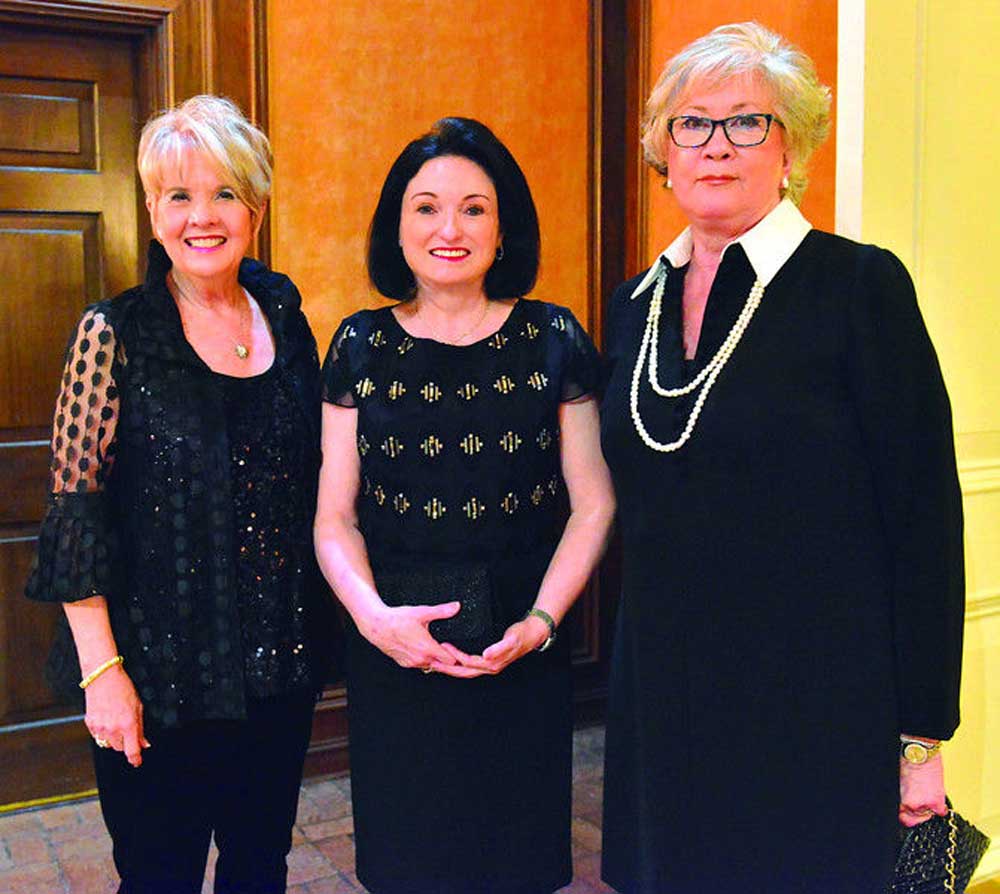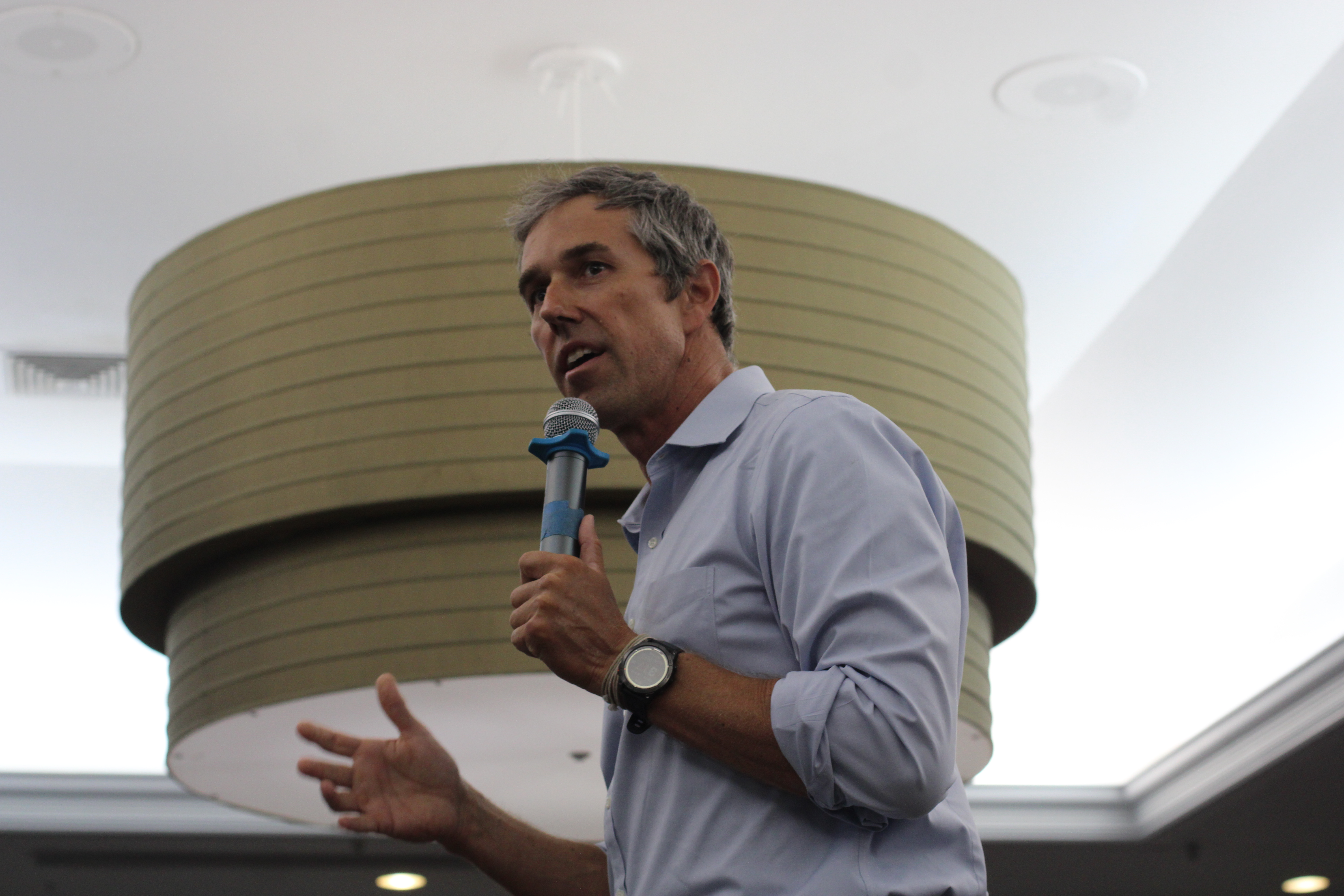UPDATE: Tyler City Council greenlights new development on 294 acres
Published 6:15 pm Wednesday, April 24, 2019

- An alternative proposed by Robert Justis, seen at the April 24, 2019 City Council meeting in Tyler, Texas. (Erin Mansfield/Tyler Morning Telegraph)
The Tyler City Council has given the green light to development on nearly 300 acres of land in the southern part of the city, setting up a decade of building in that part of the city and continuing a debate over apartments in the area.
The City Council voted to rezone 294 acres of formerly agricultural land owned by the Genecov Group so that it can be used for housing, office buildings, retail property and combinations of those.
The vote came after a daylong City Council meeting where more than 25 members of the public spoke against the development, and City Council members sought to mediate a resolution between neighbors and the property owner.
The Genecov Group had requested to rezone 319 acres, and received approval from the Planning and Zoning Commission, but the City Council decided not to approve a zoning change for a 25-acre parcel where the company sought to build apartments.
The meeting came to a head several hours in, when people in the audience of the crowded City Council chamber yelled out their disagreement when Mayor Martin Heines spoke about approving the zoning change the same day, with multifamily development.
“What is the rush to do anything today?” one person yelled.
“Let’s table it!” another added.
“If we don’t accommodate multifamily and mixed-use developments where they belong, they’re going to pop up where they don’t belong where they really do become a problem,” Mark Priestner, a planner who is working for the Genecov Group, told the City Council before the vote.
Trey Brewer, a vice president for the Genecov Group, said the company has agreed to reduce the density of apartments on the land, but can’t go further because there’s a need for enough housing units to spread out the cost of upscale amenities on the property, like pools and tennis courts.
“I have done this for nine years,” Heines told the crowd. “The best agreements that I’ve ever been a part of happen when all of us are in the same room. While it’s uncomfortable, and not fun at all, this is the best opportunity we have with the developer, with you (members of the public) here, the planner, our planning staff, to come up with some sort of agreement.”
Another man started yelling at Heines from one of the back rows, prompting a heated reaction.
“If you think you’re going to come here and negotiate and work on a plan that has no residential, you’re in the wrong place,” Heines said. “Because growth is going to happen. This is not going to be a blank slate of trees.”
The man then shouted back at Heines, who told him to come up to the lectern to make a comment. The man asked the City Council to take more time and consider alternatives.
One of those alternative proposals came from Robert Justis, 53, who lives in the Holly Park subdivision. He pointed to the developers’ plan to extend Hollytree Drive west to connect with Old Jacksonville Highway, which is based on a city planning document from about seven years ago.
Justis proposed that Hollytree Drive be extended in parts, but not fully connected to Old Jacksonville, in order to prevent Hollytree Drive from being used as a cut-through. He showed the City Council an image he created that would have the road end in a cul-de-sac in several different places.
Justis said the proposal would eliminate a lot of worries from people on Hollytree Drive who are concerned about traffic from commercial development and apartments, and would cut costs for the Genecov Group because the company would not need to build a bridge over West Mud Creek.
Councilwoman Linda Sellers, who represents the area in question, suggested that the City Council approve the majority of the zoning change proposal with the exception of the 25-acre zoning that would allow an apartment complex.
Sellers said that would allow the Genecov Group to move forward with a majority of its plan while the remainder of the land would remain zoned for agricultural use.
After further discussion, Heines said that would be a good option to avoid adding an additional two hours to the already lengthy meeting.
Councilman Bob Westbrook made the motion, and Sellers seconded.
The item passed on a voice vote, with no dissent.
TWITTER and INSTAGRAM: @_erinmansfield






